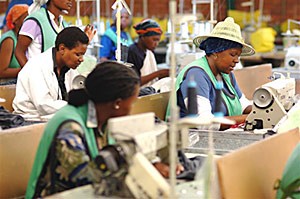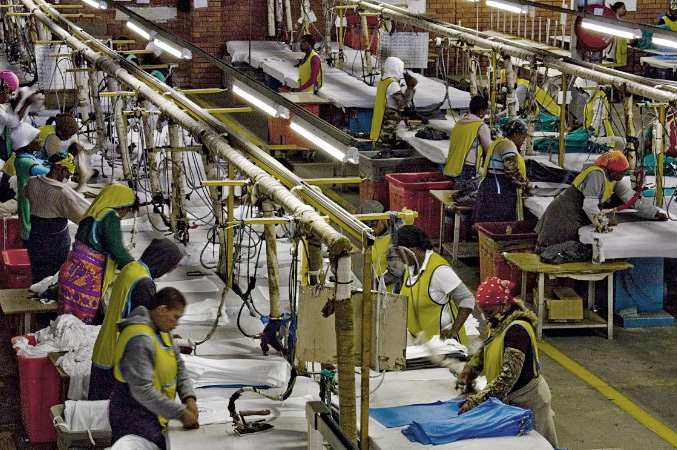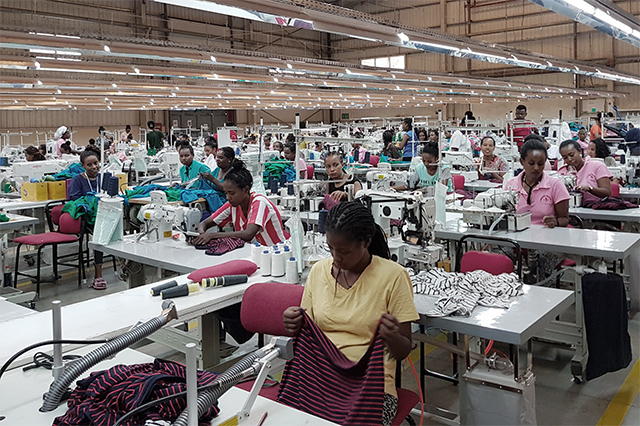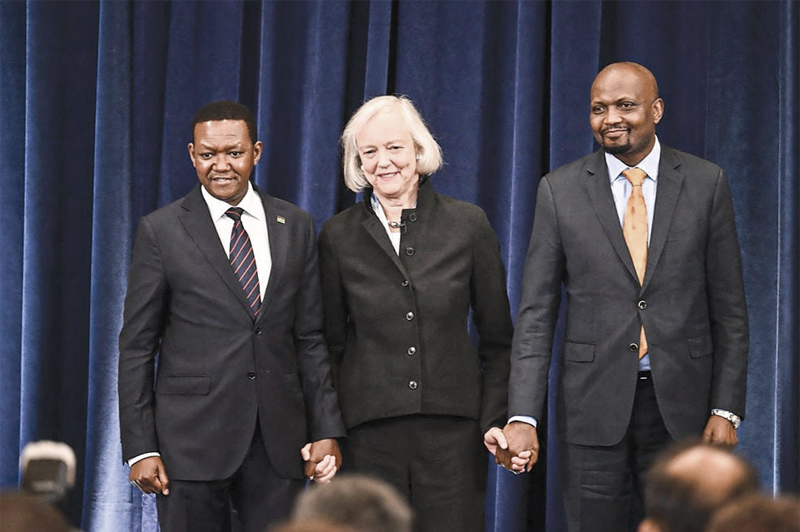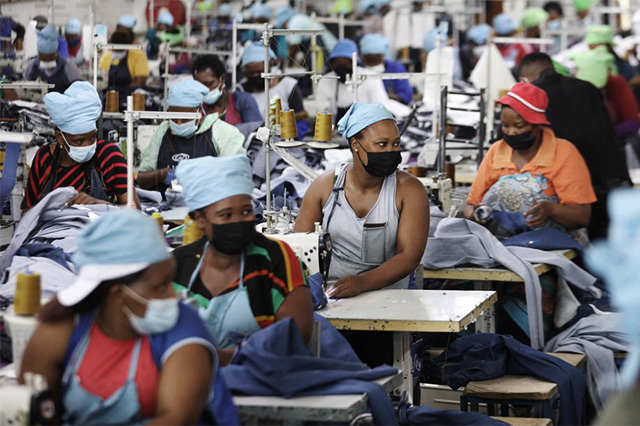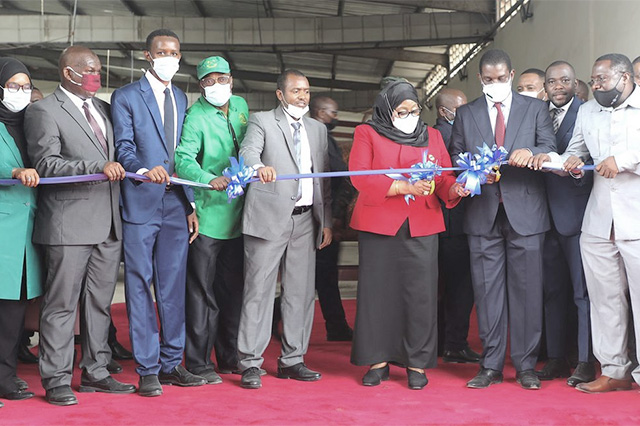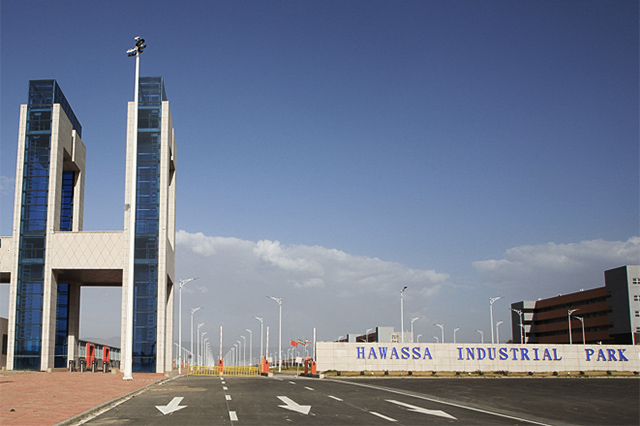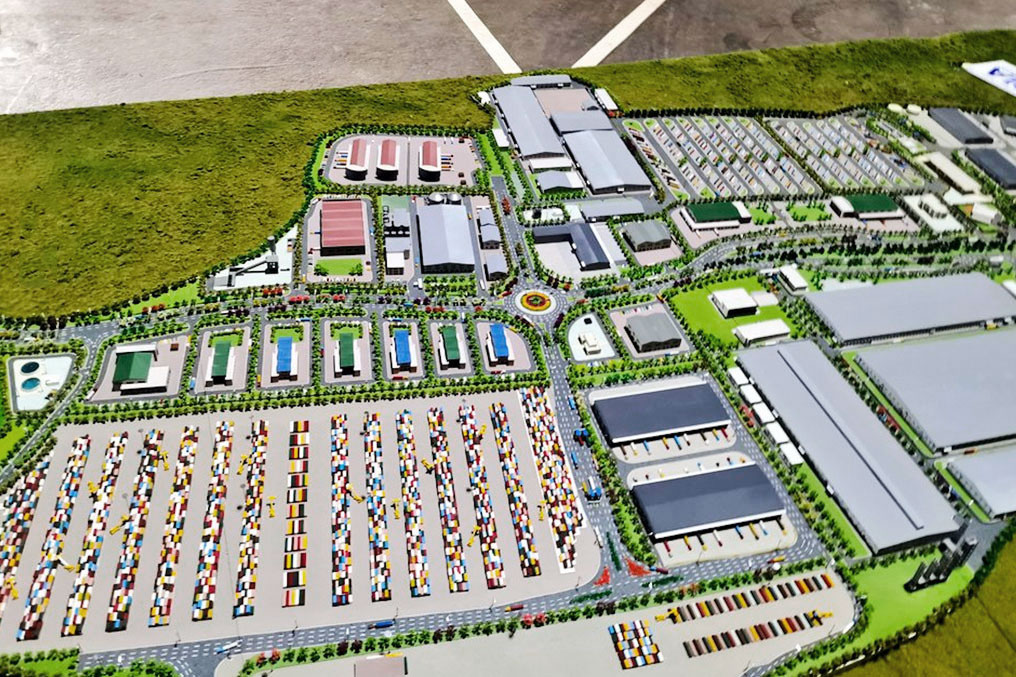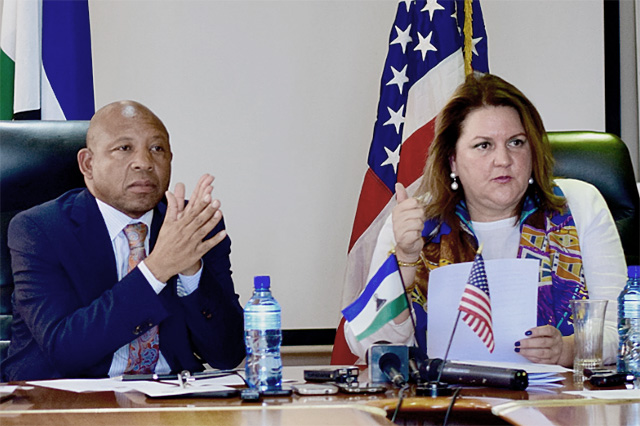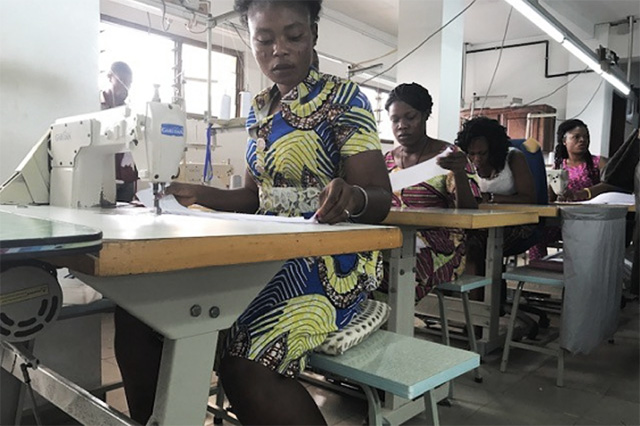Lesotho: Growth in textiles and clothing plays central role in jobs creation
The Lesotho Precious Garments factory is bustling with industry as hundreds of machinists, mostly women, bend over sewing machines and turn brightly coloured fabrics into shirts destined for the US market.
Outside the gates, dozens of people sit in the morning sun, hoping that they too might find work in the textile plant on an industrial estate in the heart of Maseru.
“They are here every day, many spend the night – they are desperate for jobs and stay outside for days hoping to be hired,” says Nkopane Monyane, regional manager at the factory and vice-president of the Lesotho Textile Exporters’ Association.
The fact that they put such faith in textile factories as they search for jobs is not surprising. The sector is a crucial source of employment and one of the few industries of scale the nation can boast. Textiles and clothing contribute about 45 per cent of exports.
Growth of the textile industry can be traced back to the early 2000s and is largely the result of the African Growth and Opportunities Act (Agoa), a US trade agreement that gives eligible African countries duty-free access to US markets.
In recent years it has felt the effects of the slowdown in the US, coupled with uncertainty over whether the agreement will be renewed in its current form and increasing competition from countries such as Vietnam and Bangladesh.
Textiles is still by far Lesotho’s biggest private sector employer, providing work for 37,000 people, down from 50,000 at its peak in the mid-2000s. In 2006, it accounted for 21 per cent of gross domestic product, a figure that dipped to about 12 per cent last year.
Textiles’ travails have focused attention on the need to develop other industries if Lesotho is to tackle its problems of unemployment and poverty.
Limited access to finance, poor infrastructure, huge transport costs and the low level of skills are among the obstacles to development.
Despite playing host to the textile sector for more than a decade, there are no Basotho owners. The factories are operated by Taiwanese, South Africans and Chinese.
Government officials say there has been increasing Chinese interest in the mining sector and they hope to attract more Chinese industry, as well as the kind of investment in infrastructure that Beijing has become involved in elsewhere on the continent.
But Mr Monyane says the government has relied too much on foreign investors and done too little to develop supplementary industries and local skills. “In the good years, the government only focused on creating jobs rather than developing an industry, so they focused on FDI [foreign direct investment],” Mr Monyane says.
“They said: ‘We will get investors to get you jobs’ but that approach has compromised us in trying to build up our own sustainability ... As a result, Lesotho has industrialists but no industry.”
Joshua Setipa, head the of Lesotho National Development Corporation (LNDC), says the downturn in the industry has stabilised, adding that about half of the exports are shipped to regional markets.
“So, whatever shock that we could get from the US market, there’s some cover, and that brings a bit of stability,” he says.
He adds that there are projects under way to ensure that more locally produced inputs will be used at the factories, such as zips, buttons and collars. “Within the next three years, we should be able to reach the level of vertical integration that we need,” Mr Setipa says.
“We have a mill, which is the biggest denim mill on the continent, but also we are in the process of concluding negotiations for a knit fabric mill. Once we have that, it means we are able to produce all the knit clothing for which we currently import inputs from Pakistan, in particular.”
The LNDC is also trying to encourage investment in other industries such as water bottling, food processing and wool and mohair, with a focus on attracting more Chinese and South African companies.
Government officials cite relatively low wage costs and labour stability as advantages Lesotho has over its larger neighbour, with Mr Setipa saying that, on average, production costs are 30 per cent cheaper than in South Africa.
The government will provide factory shells for manufacturers investing in the kingdom. It can point to one high-profile success – the decision by Philips to open a plant in the kingdom in 2009 to produce low energy bulbs.
Diamond mining has attracted increasing interest – particularly from Chinese companies – as it has grown over the past decade from a low base. It accounted for nearly 7 per cent of GDP in 2010-11 compared with 0.5 per cent in the early 2000s, according to the World Bank.
In 2011, diamond exports rose by 97 per cent as demand slowly recovered in the wake of the economic crisis. Most of that growth came from output at Letseng – one of two mines producing in the kingdom – which doubled its capacity. This helped compensate for the closure of two smaller mines hit by the drop in demand in 2008.
Mining is another activity deemed to be performing below its potential. The government plans to carry out the first geological survey in decades and draw up new legislation. “We tend to believe that there is more in terms of what is available in Lesotho than just diamonds,” says Leketekete Ketso, the finance minister.
If Lesotho is to lure more industry to a market of just 2m people, the government has much to do to improve the investment climate. In the latest World Bank Doing Business Report, Lesotho rose 17 places, but still ranked 136 out of 185 nations.ral trade with the United States, disaggregated by total exports and imports, AGOA exports and GSP exports.


